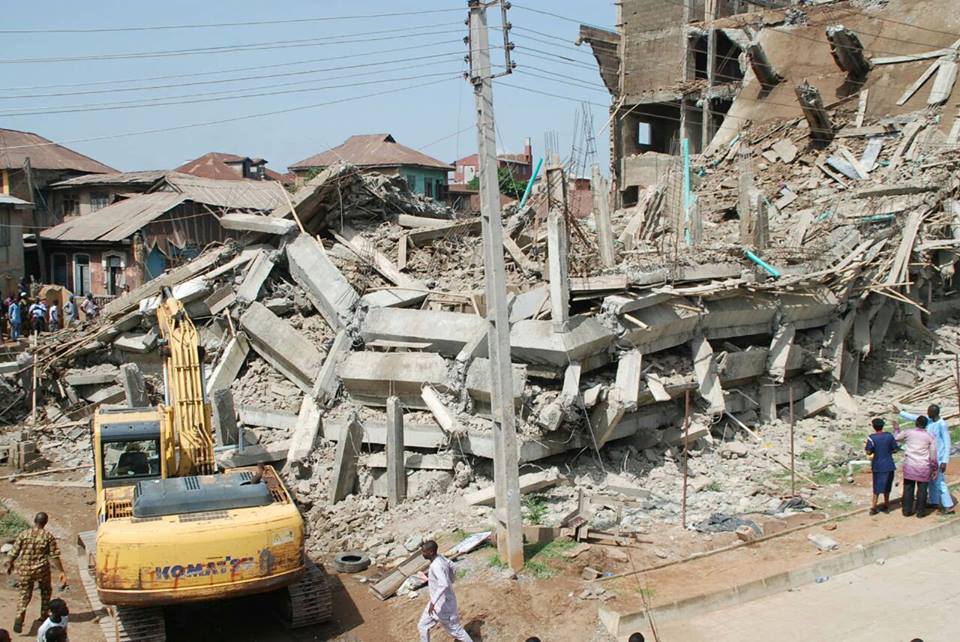Alarming incidence of building collapse

The rate of building collapse in the country should be of concern to every Nigerians. It is daily becoming something of national embarrassment to hear of building collapse in one part of the country or another. However, the rate of occurrence differs among parts of the country. Only recently, it was revealed that Lagos State recorded the highest number of building collapse of the 64 incidents that took place throughout the country from 2007 until date. Moreover, the incidences in the state recorded a total of 178 deaths and 266 injuries within the period. Following closely was the Federal Capital Territory (FCT), Abuja with a total of 131 deaths and 26 injured
Incidentally, most of the building involved are those under construction or even completed ones with occupants. Much as we are alarmed at the increasing building collapse, the authorities are looking powerless in the face of such tragedies. Much as the incidences are not spontaneous, the attitude of those responsible for checking their occurrence has become very predictable. That is why contractors, surveyors and town planning authorities in the building industry are never contrite whenever such tragedies occur. Rather, they carry on as if those incidents are meant to happen anyway.
Building experts have adduced several reasons for the frequency of building collapse in the country. Among these are the use of low quality building materials including the employment of incompetent artisans and weak supervision of workmen on site. In addition, they argue that the tragedies are traceable to incompetent contractors. Moreover, they point out the non-enforcement of existing laws and endemic poor work ethics of Nigerians at large.
Others are faulty construction methodology, improper design, poor town planning approval/development process and economic pressure. Other remote factors include absence of soil test report, inability to carry out proper land survey, failure by foremen to understand and interprete building codes and lack of coordination between professional bodies in the industry.
We believe it is time the authorities take adequate and concrete steps to stem these incidence in the interests of the country’s reputation, including those unfortunate to find themselves at such spots when tragedies occur. However, how serious the various government and their agencies take the enforcement of standards, supervision and regulation building construction nationwide holds the key to stemming the malaise. For example, in 2014, the Standards Organisation of Nigeria (SON), in response to the development, gave October 1, 2014 as deadline for sand, concrete and allied products manufacturers to comply with new cement and block codes, among others. It is debatable how far the SON has gone in enforcing compliance. We therefore call on the authorities to enact a National Building Code and put in place a Construction Industry Commission (CIC), training and retraining of building practitioners and strict adherence to quality building materials according to specifications. Time has come desist from always passing the buck or putting the blame squarely on poor-quality cement, fake iron rods, greed of foremen and utter disregard for building and construction laws with intentional neglect for the safety of the occupants to putting in place punitive measures to ensure engineers or architects who supervise the erection of such substandard buildings are made to face the full wrath of the law.








